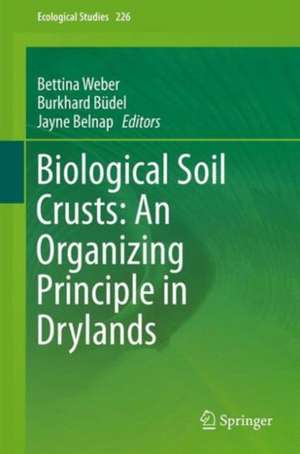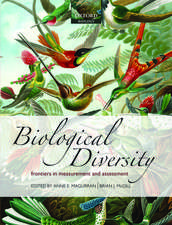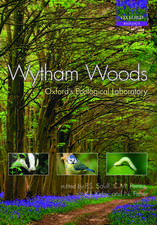Biological Soil Crusts: An Organizing Principle in Drylands: Ecological Studies, cartea 226
Editat de Bettina Weber, Burkhard Büdel, Jayne Belnapen Limba Engleză Hardback – 27 mai 2016
| Toate formatele și edițiile | Preț | Express |
|---|---|---|
| Paperback (1) | 1460.43 lei 38-44 zile | |
| Springer International Publishing – 30 mai 2018 | 1460.43 lei 38-44 zile | |
| Hardback (1) | 1483.34 lei 38-44 zile | |
| Springer International Publishing – 27 mai 2016 | 1483.34 lei 38-44 zile |
Din seria Ecological Studies
- 18%
 Preț: 1118.93 lei
Preț: 1118.93 lei -
 Preț: 553.71 lei
Preț: 553.71 lei - 18%
 Preț: 1680.55 lei
Preț: 1680.55 lei - 18%
 Preț: 1003.38 lei
Preț: 1003.38 lei - 20%
 Preț: 1004.69 lei
Preț: 1004.69 lei -
 Preț: 480.62 lei
Preț: 480.62 lei - 5%
 Preț: 752.26 lei
Preț: 752.26 lei - 15%
 Preț: 643.99 lei
Preț: 643.99 lei - 15%
 Preț: 644.18 lei
Preț: 644.18 lei - 15%
 Preț: 652.49 lei
Preț: 652.49 lei - 18%
 Preț: 789.83 lei
Preț: 789.83 lei -
 Preț: 382.36 lei
Preț: 382.36 lei - 15%
 Preț: 643.48 lei
Preț: 643.48 lei - 15%
 Preț: 646.30 lei
Preț: 646.30 lei - 15%
 Preț: 634.32 lei
Preț: 634.32 lei -
 Preț: 384.86 lei
Preț: 384.86 lei - 18%
 Preț: 789.98 lei
Preț: 789.98 lei - 15%
 Preț: 645.14 lei
Preț: 645.14 lei - 15%
 Preț: 649.39 lei
Preț: 649.39 lei - 18%
 Preț: 1005.43 lei
Preț: 1005.43 lei - 18%
 Preț: 949.23 lei
Preț: 949.23 lei - 15%
 Preț: 649.54 lei
Preț: 649.54 lei - 15%
 Preț: 643.34 lei
Preț: 643.34 lei - 15%
 Preț: 649.71 lei
Preț: 649.71 lei - 15%
 Preț: 638.76 lei
Preț: 638.76 lei - 18%
 Preț: 957.62 lei
Preț: 957.62 lei - 18%
 Preț: 1235.25 lei
Preț: 1235.25 lei - 18%
 Preț: 962.18 lei
Preț: 962.18 lei - 18%
 Preț: 949.23 lei
Preț: 949.23 lei - 15%
 Preț: 660.68 lei
Preț: 660.68 lei -
 Preț: 397.76 lei
Preț: 397.76 lei - 15%
 Preț: 638.24 lei
Preț: 638.24 lei - 18%
 Preț: 942.31 lei
Preț: 942.31 lei - 18%
 Preț: 1232.57 lei
Preț: 1232.57 lei - 15%
 Preț: 651.34 lei
Preț: 651.34 lei - 18%
 Preț: 952.72 lei
Preț: 952.72 lei - 18%
 Preț: 1834.27 lei
Preț: 1834.27 lei - 18%
 Preț: 1229.10 lei
Preț: 1229.10 lei -
 Preț: 423.95 lei
Preț: 423.95 lei - 18%
 Preț: 948.92 lei
Preț: 948.92 lei
Preț: 1483.34 lei
Preț vechi: 1951.76 lei
-24% Nou
Puncte Express: 2225
Preț estimativ în valută:
283.83€ • 297.14$ • 234.86£
283.83€ • 297.14$ • 234.86£
Carte tipărită la comandă
Livrare economică 02-08 aprilie
Preluare comenzi: 021 569.72.76
Specificații
ISBN-13: 9783319302126
ISBN-10: 3319302124
Pagini: 350
Ilustrații: IX, 549 p. 130 illus., 81 illus. in color.
Dimensiuni: 155 x 235 x 33 mm
Greutate: 1.16 kg
Ediția:1st ed. 2016
Editura: Springer International Publishing
Colecția Springer
Seria Ecological Studies
Locul publicării:Cham, Switzerland
ISBN-10: 3319302124
Pagini: 350
Ilustrații: IX, 549 p. 130 illus., 81 illus. in color.
Dimensiuni: 155 x 235 x 33 mm
Greutate: 1.16 kg
Ediția:1st ed. 2016
Editura: Springer International Publishing
Colecția Springer
Seria Ecological Studies
Locul publicării:Cham, Switzerland
Cuprins
Biological soil crusts as a critical zone of globalimportance.- How biological soil crusts became studied as a community.- Fossilcrusts.- Cyanobacteria and algae within biological soil crusts.- Fungi and bacteriawithin biological soil crusts.- Bryophytes within biological soil crusts.-Lichens within biological soil crusts.- Microfauna within biological soilcrusts.- Composition and structure of biological soil crusts.- Controls ondistribution patterns of biological soil crusts at the micro-, macro-, andglobal scale.- Hypolithic communities.- Remote sensing of biological soilcrusts at different scales.- Microstructure and weathering processes withinbiological soil crusts.- Patterns and controls on nitrogen cycling of biologicalsoil crusts.- Carbon budgets of biological soil crusts at micro- meso-, andglobal scales.- Biological soil crusts as soil stabilizers.- Effects ofbiological soil crusts on arid land hydrology.- Response of biological soilcrust organisms to light, temperature, and water conditions.- Interactions ofbiological soil crusts with vascular plants.- Biological soil crusts as model tostudy plant interactions and functional roles.- Effects of disturbance onbiological soil crusts.- Effects of climate change on biological soil crusts.- Naturalrecovery of biological soil crusts after disturbance.- Enhanced recovery ofbiological soil crusts after disturbance.- Synthesis on biological soil crustresearch.
Textul de pe ultima copertă
This volume summarizes our currentunderstanding of biological soil crusts (biocrusts), which are omnipresent indryland regions. Since they cover the soil surface, they influence, or evencontrol, all surface exchange processes. Being one of the oldest terrestrialcommunities, biocrusts comprise a high diversity of cyanobacteria, algae,lichens and bryophytes together with uncounted bacteria, and fungi. The authorsshow that biocrusts are an integral part of dryland ecosystems, stabilizingsoils, influencing plant germination and growth, and playing a key role incarbon, nitrogen and water cycling. Initial attempts have been made to usebiocrusts as models in ecological theory. On the other hand, biocrusts are endangeredby local disruptions and global change, highlighting the need for enhancedrecovery methods. This book offers a comprehensive overview of the fascinatingfield of biocrust research, making it indispensable not only for scientists inthis area, but also for land managers, policy makers, and anyone interested inthe environment.
Caracteristici
updated overview of the field following the publication of Volume 150 on biocrusts in 2003 Enhancesour understanding of the role of biocrusts as an organizing principle in drylands Identifiesknowledge gaps and offers ideas for promising new research approaches Includes supplementary material: sn.pub/extras













